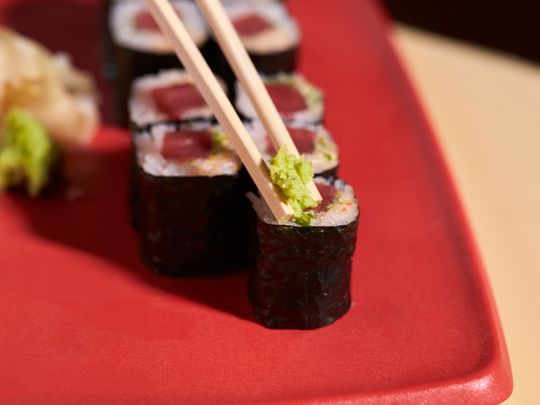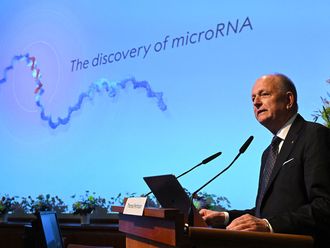
London: Love to eat sushi? While sushi can be delicious, it also carries a health hazard, both for individuals and for society at large, finds a study.
Bacteria in raw seafood can make people sick and seafood can also spread bacteria that are resistant to antibiotics.
"Bacteria in sushi, sashimi and cold-smoked fish products can pose a risk to people who eat such foods frequently, especially people with weak immune systems, children and the elderly,” said Hyejeong Lee, a doctoral student at Norwegian University of Science and Technology in Norway. In her thesis, she investigated different varieties of Aeromonas bacteria in seafood products that do not undergo extensive processing.
Without heat treatment or the use of other antibacterial methods, the risk of bacteria levels becoming high increases sharply.
Listeria monocytogenes is probably the best-known pathogenic bacteria related to raw or mildly processed seafood.
However, the prevalence of Aeromonas in these kinds of products has worried scientists for some time.
The study, published in the journal Frontiers in Microbiology, showed that the processing of sushi, sashimi and cold-smoked fish is ineffective in preventing bacterial growth.
“The majority of these Aeromonas variants are possibly pathogenic and there are often several different risk factors associated with them,” Lee said.
She emphasised that the risk of getting sick from Aeromonas is admittedly very small, especially for healthy people. But, some strains of Aeromonas can also spread antibiotic resistance from one type of bacteria to another.
"Eating seafood infected by resistant bacteria is a likely way these bacteria can spread from marine animals and environments to humans."
Resistant bacteria are a growing problem around the world.
Resistant bacteria do not cause more disease than other bacteria, but they are far more difficult to treat, because not all types of antibiotics work against them. In a worst case scenario, no antibiotics work at all.








